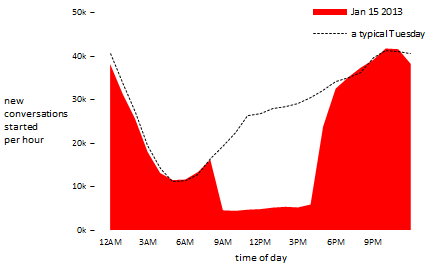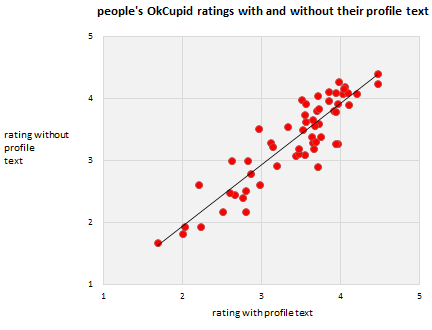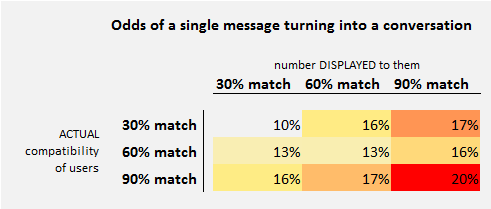Facebook caught a ton of flak recently when word got out that the social network had performed psychological experiments on close to 700,000 unknowing users. Now it's OKCupid's turn to see what it feels like to be under the media microscope.
Christian Rudder, president of the popular online dating service, admitted in a recent blog post that Facebook isn't the only online company to experiment with its users. In the tell-all post, Rudder outlines three of the more interesting experiments OKCupid has run over the years.
A while ago, the site came up with an idea for a blind dating app. As you can imagine, the app was a total failure and yanked from app stores after just six months. But to celebrate its release, the team removed all profile pictures from the main site on launch day.

Traffic tanked on "Love is Blind Day" but they found that people responded to first messages 44 percent more often, conversations went deeper, contact details were swapped much sooner and in short, the site worked better. When pictures were restored, however, Rudder notes that 2,200 people that were in the middle of conversations abandoned them. He likened it to turning on the bright lights at the bar at midnight.
In another test, OKCupid was curious about the relationship of someone's personality score to their looks score. To confirm their hunch that people just look at pictures, they took a small sample of users and hid their profile text. Doing so generated two sets of data and sure enough, they found profile text is nearly meaningless as a personality score.

Yet another experiment was conducted to put the site's matching ability to the test. Like others, OKCupid uses a mathematical formula based on several metrics to come up with a compatibility score. The team at OKCupid wondered what would happen if they switched scores around for potential matches.
To test this, they took pairs of bad matches (actual 30 percent matches) and told users they were great for each other by showing a 90 percent match. Sure enough, users were more likely to send a first message if the compatibility score was higher. The data also seemed to suggest that users liked each other more even though they weren't true matches.

I think Rudder sums it up best at the very beginning of his post when he says, "If you use the Internet, you're the subject of hundreds of experiments at any given time, on every site. That's how websites work."
